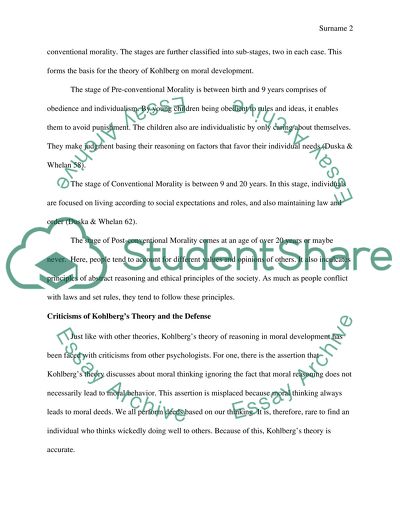Cite this document
(“Moral Development Essay Example | Topics and Well Written Essays - 1250 words - 1”, n.d.)
Retrieved from https://studentshare.org/environmental-studies/1421988-a-defend-kohlberg-s-position-against-at-least-one
Retrieved from https://studentshare.org/environmental-studies/1421988-a-defend-kohlberg-s-position-against-at-least-one
(Moral Development Essay Example | Topics and Well Written Essays - 1250 Words - 1)
https://studentshare.org/environmental-studies/1421988-a-defend-kohlberg-s-position-against-at-least-one.
https://studentshare.org/environmental-studies/1421988-a-defend-kohlberg-s-position-against-at-least-one.
“Moral Development Essay Example | Topics and Well Written Essays - 1250 Words - 1”, n.d. https://studentshare.org/environmental-studies/1421988-a-defend-kohlberg-s-position-against-at-least-one.


